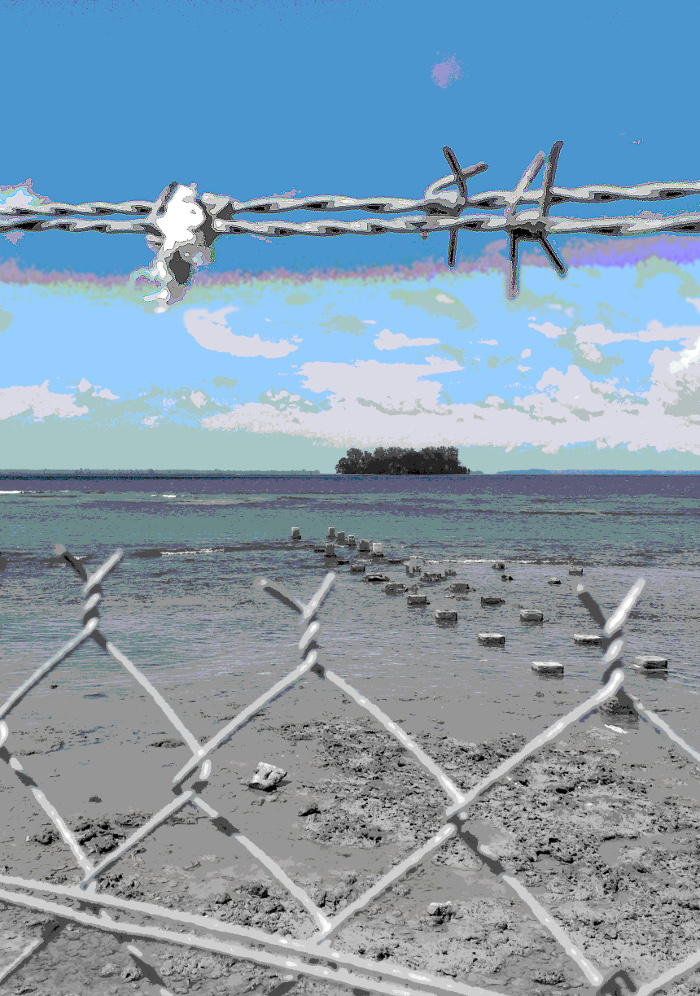Amnesty slams asylum profiteers
 The companies running Australian offshore detention centres have been accused of profiting from torture.
The companies running Australian offshore detention centres have been accused of profiting from torture.
Spanish firm Ferrovial owns Broadspectrum - the company responsible for running services on Nauru and Manus Island - and makes millions from Federal Government contracts to keep approximately 1,200 asylum seekers and refugees locked up.
Amnesty International has produced a report focusing on Ferrovial and Broadspectrum, and exactly what they do for the billions they have been paid.
The report -Treasure I$land’: How companies are profiting from Australia’s abuse of refugees on Nauru - accuses Broadspectrum of four key failures of its human rights responsibilities on Nauru:
- Causing human rights abuses
- Contributing to the Australian government's violations of refugee rights
- Failing to implement its own human rights policy
- Failing to undertake due diligence
The human rights group blames Ferrovial, as Broadspectrum's sole shareholder, for the failures.
It also criticises the opaque setup of the scheme, which Amnesty says allows the Australian government, Broadspectrum and the governments of Nauru or PNG to variously blame each other for issues, allowing each party to avoid true responsibility.
Government figures from 2016 show about $AU573,000 a year is spent holding just one person in offshore detention.
Broadspectrum’s three year $AU2.5 billion detention centre contract with the Australian government ends in October, and Amnesty International has called on other firms not to seek profit from torture.
“Any company considering taking up this toxic baton will be complicit in an intentionally abusive system, in direct contravention of its human rights responsibilities, and will be exposing itself to potential criminal liability and damages claims,” said Lucy Graham, Amnesty International’s Researcher on Business and Human Rights.
“The regime of cruelty at the Refugee Processing Centre on Nauru leaves a stain that no responsible company would want on its conscience or reputation.”
The part of Broadspectrum’s business that runs its operations on Nauru and Manus Island brought in $AU1.646 billion in the 2016 financial year – a total of 45 per cent of the company’s operating revenues.
Meanwhile, Ferrovial has recorded 1.4 billion euros in revenue from Broadspectrum since acquiring the company, giving access to a substantial portion of the money coming from operations on Nauru and Manus Island.
The report says these numbers could be higher, as it is currently impossible to tell exactly how much Broadspectrum makes from its contract with the Department of Immigration and Border Protection (DIBP).
“Ferrovial has not released details of Broadspectrum's exact profits from the DIBP contract, saying that it is confidential,” it states.
“The vast amount of money that Ferrovial and Broadspectrum make from the DIBP contract stands in stark contrast to the shockingly poor conditions in which refugees and people seeking asylum have been forced to live at the RPC [regional processing centre] on Nauru since it has been operated by Broadspectrum.”
The DIBP has issued a statement saying the report is inaccurate.
“Once again, Amnesty International has published this report without contacting the Department for comment,” it stated.
“This lack of consultation calls into question both the legitimacy of this report and also Amnesty's commitment to factual research.
“Additionally, this report again fails to take into account significant evidence presented by the Department through various submissions and public forums, again suggesting a preference for sensationalism rather than accurate and informed reporting.”







 Print
Print